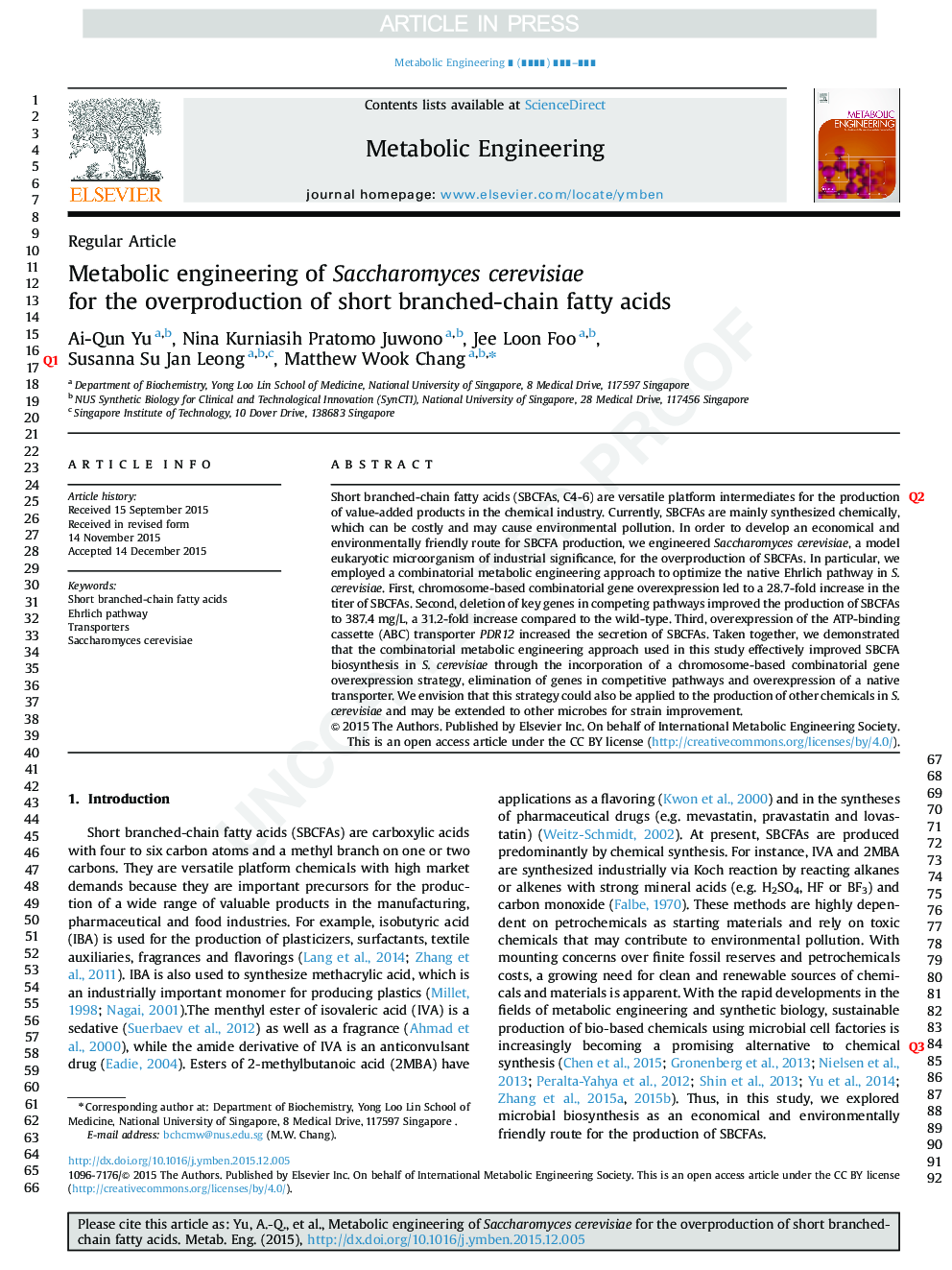| Article ID | Journal | Published Year | Pages | File Type |
|---|---|---|---|---|
| 6494270 | Metabolic Engineering | 2016 | 8 Pages |
Abstract
Short branched-chain fatty acids (SBCFAs, C4-6) are versatile platform intermediates for the production of value-added products in the chemical industry. Currently, SBCFAs are mainly synthesized chemically, which can be costly and may cause environmental pollution. In order to develop an economical and environmentally friendly route for SBCFA production, we engineered Saccharomyces cerevisiae, a model eukaryotic microorganism of industrial significance, for the overproduction of SBCFAs. In particular, we employed a combinatorial metabolic engineering approach to optimize the native Ehrlich pathway in S. cerevisiae. First, chromosome-based combinatorial gene overexpression led to a 28.7-fold increase in the titer of SBCFAs. Second, deletion of key genes in competing pathways improved the production of SBCFAs to 387.4Â mg/L, a 31.2-fold increase compared to the wild-type. Third, overexpression of the ATP-binding cassette (ABC) transporter PDR12 increased the secretion of SBCFAs. Taken together, we demonstrated that the combinatorial metabolic engineering approach used in this study effectively improved SBCFA biosynthesis in S. cerevisiae through the incorporation of a chromosome-based combinatorial gene overexpression strategy, elimination of genes in competitive pathways and overexpression of a native transporter. We envision that this strategy could also be applied to the production of other chemicals in S. cerevisiae and may be extended to other microbes for strain improvement.
Related Topics
Physical Sciences and Engineering
Chemical Engineering
Bioengineering
Authors
Ai-Qun Yu, Nina Kurniasih Pratomo Juwono, Jee Loon Foo, Susanna Su Jan Leong, Matthew Wook Chang,
